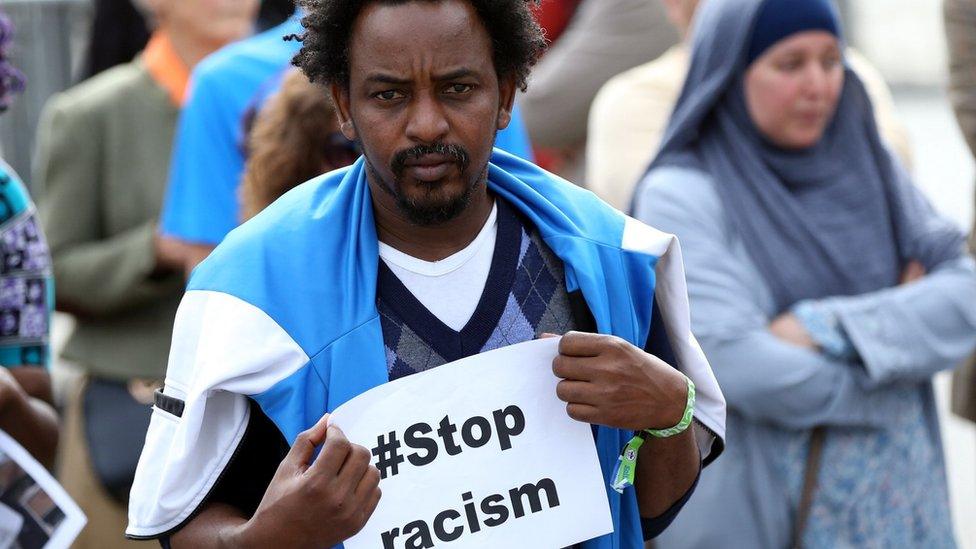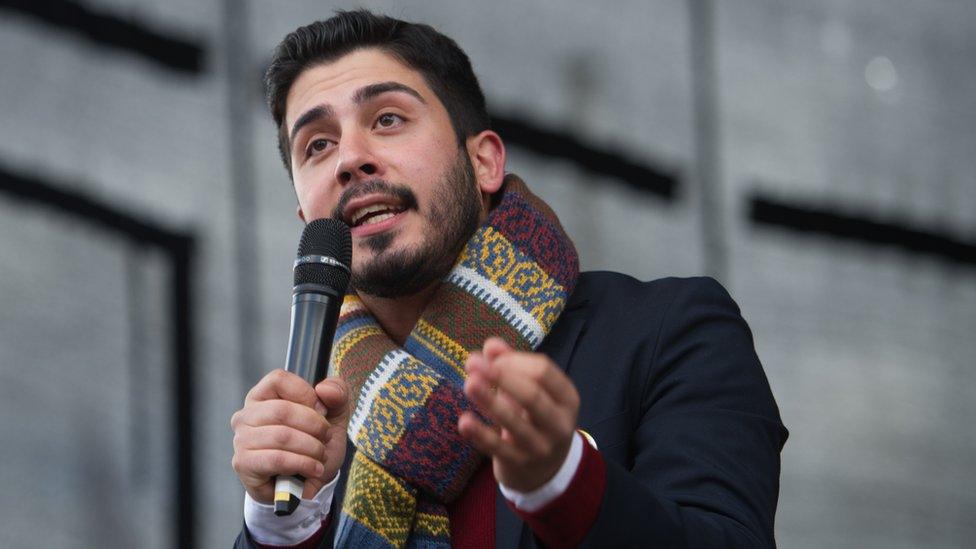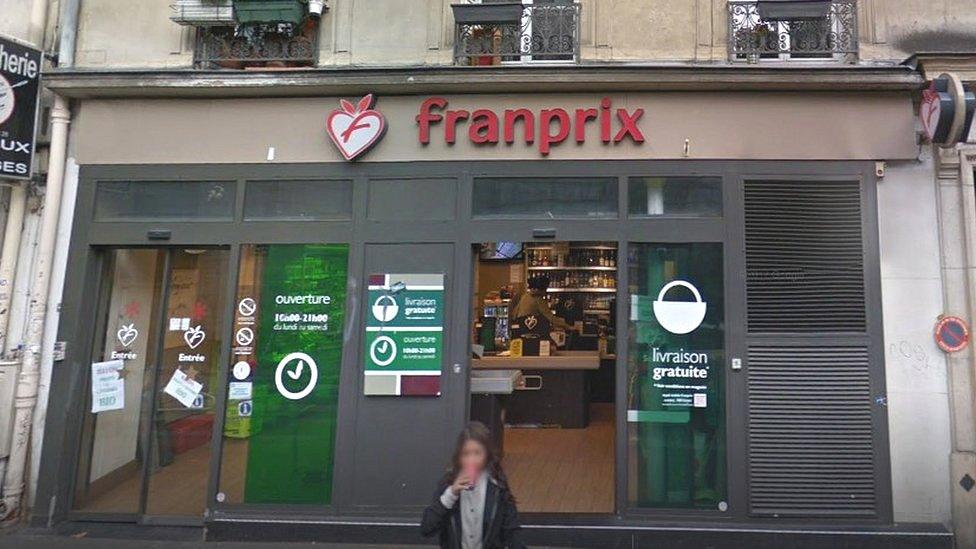Racism against black people in EU 'widespread and entrenched'
- Published

People of African descent are facing "widespread and entrenched prejudice and exclusion" across the European Union, a study suggests.
Race-related violence, discriminatory police profiling, and discrimination in the search for jobs and housing were commonplace for many, the EU's agency for fundamental rights (FRA) said.
Finland had the highest rates of race-related harassment and violence while the UK had amongst the lowest.
The FRA urged countries to take action.
"It is a reality both shameful and infuriating: racism based on the colour of a person's skin remains a pervasive scourge throughout the European Union," FRA director Michael O'Flaherty said in the foreword to the report, external.
The Being Black in the EU surveyed nearly 6,000 people in 12 EU countries - including France and Germany - between 2015 and 2016.
About 30% of the overall respondents said they had experienced some form of racial harassment in the five years before the survey. This ranged from 63% of respondents in Finland to 21% in the UK and 20% in Malta.
Five percent of those surveyed said they had experienced racist violence, including by police officers. The highest rates of racist violence were recorded in Finland (14%), Ireland and Austria (both 13%). The lowest rates were observed in Portugal (2%) and the UK (3%).
The majority said they did not report the incidents because they either felt it would not change anything or because they did not trust or were afraid of the police, the report said.
Survey 'a reality check'
Some 24% of respondents said they had been stopped by the police in the five years before the survey. Some 70% of those stopped in Italy said they believed their last encounter had been racially motivated.
Although Finland was among the highest for stop rates (38%), only a small minority thought it had been for race reasons (4%) and trust in the police there was among the highest of those surveyed. Austria also had high stop rates (66%), but 31% believed it had been racially-motivated.
When looking for work, a quarter of respondents said they had felt racially discriminated against - these rates were highest in Austria, Italy and Luxembourg. Nearly 10% said they had faced similar problems in dealing with schools and education authorities.
Access to both private and social housing was another area where 21% people said they had faced discrimination. Austria and Italy were identified as the countries where this was most likely.
Mr O'Flaherty said the survey revealed that "almost 20 years after adoption of EU laws forbidding discrimination, people of African descent face widespread and entrenched prejudice and exclusion".
He said there was an urgent need for "intensified efforts" to promote inclusion across the EU and hoped the "reality check" provided by the survey's findings "prompts meaningful measures in support of this vital goal".

You might also want to read:
- Published16 July 2018

- Published30 July 2018

- Published23 December 2017

- Published5 July 2018

- Published8 May 2018
